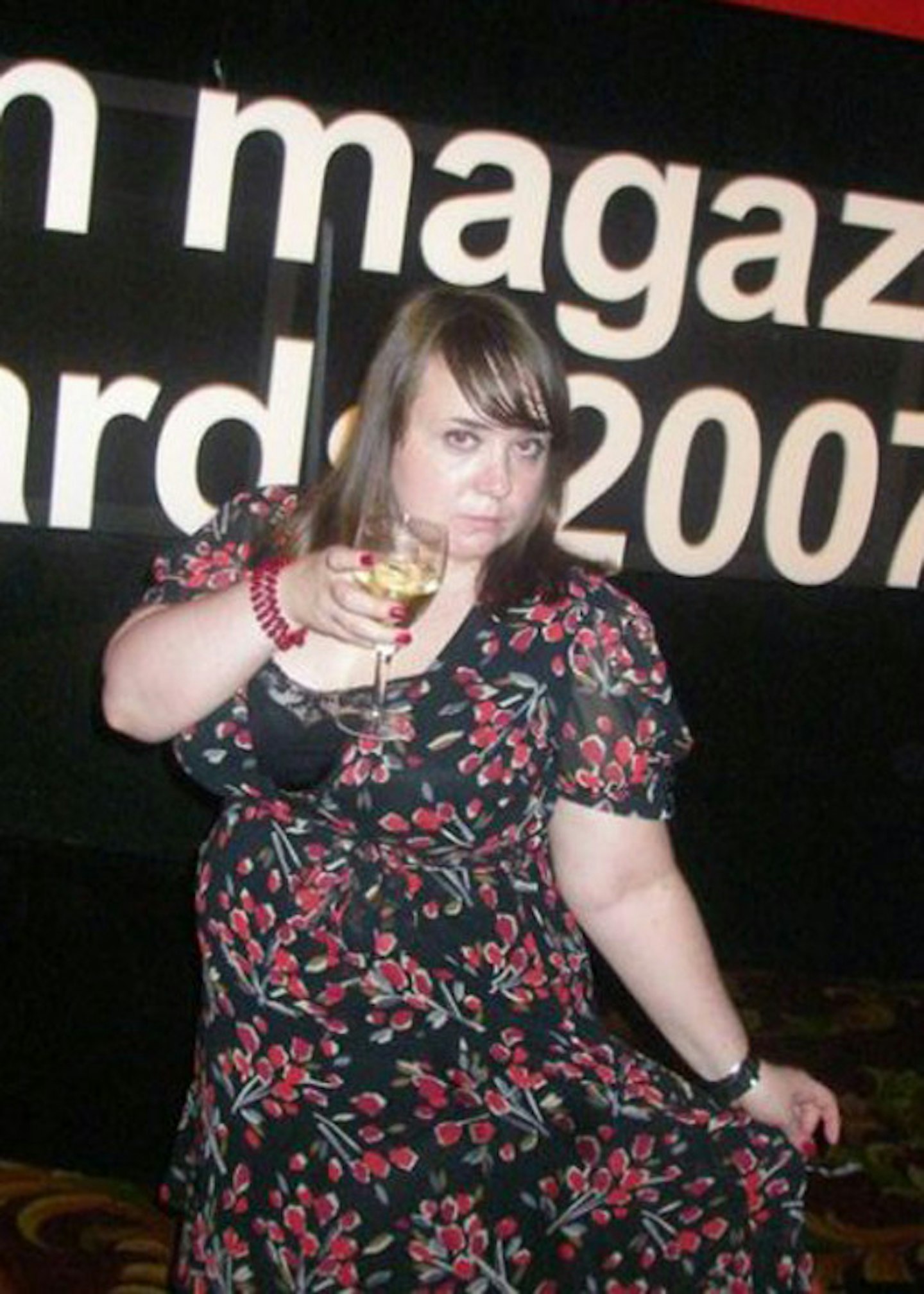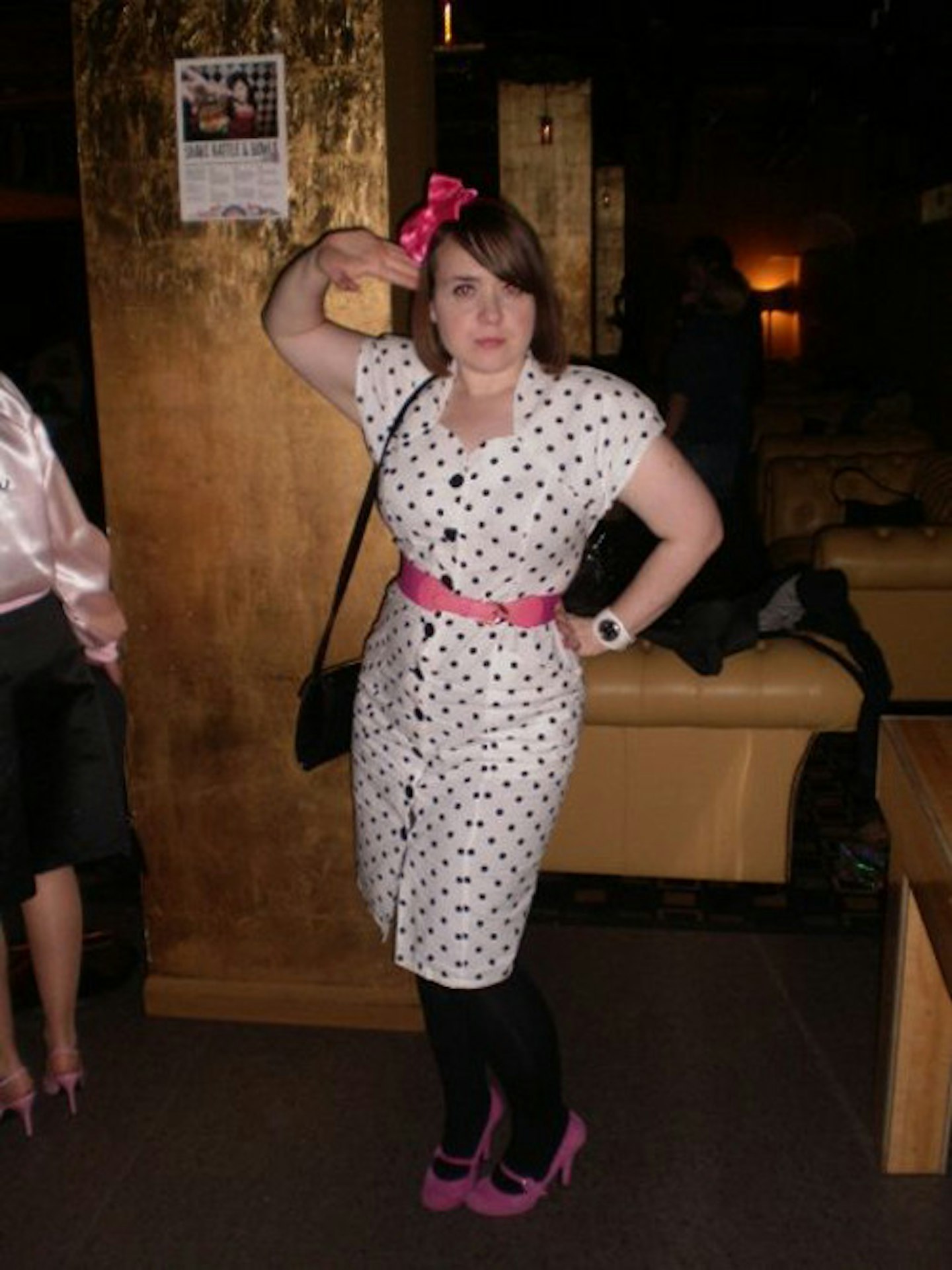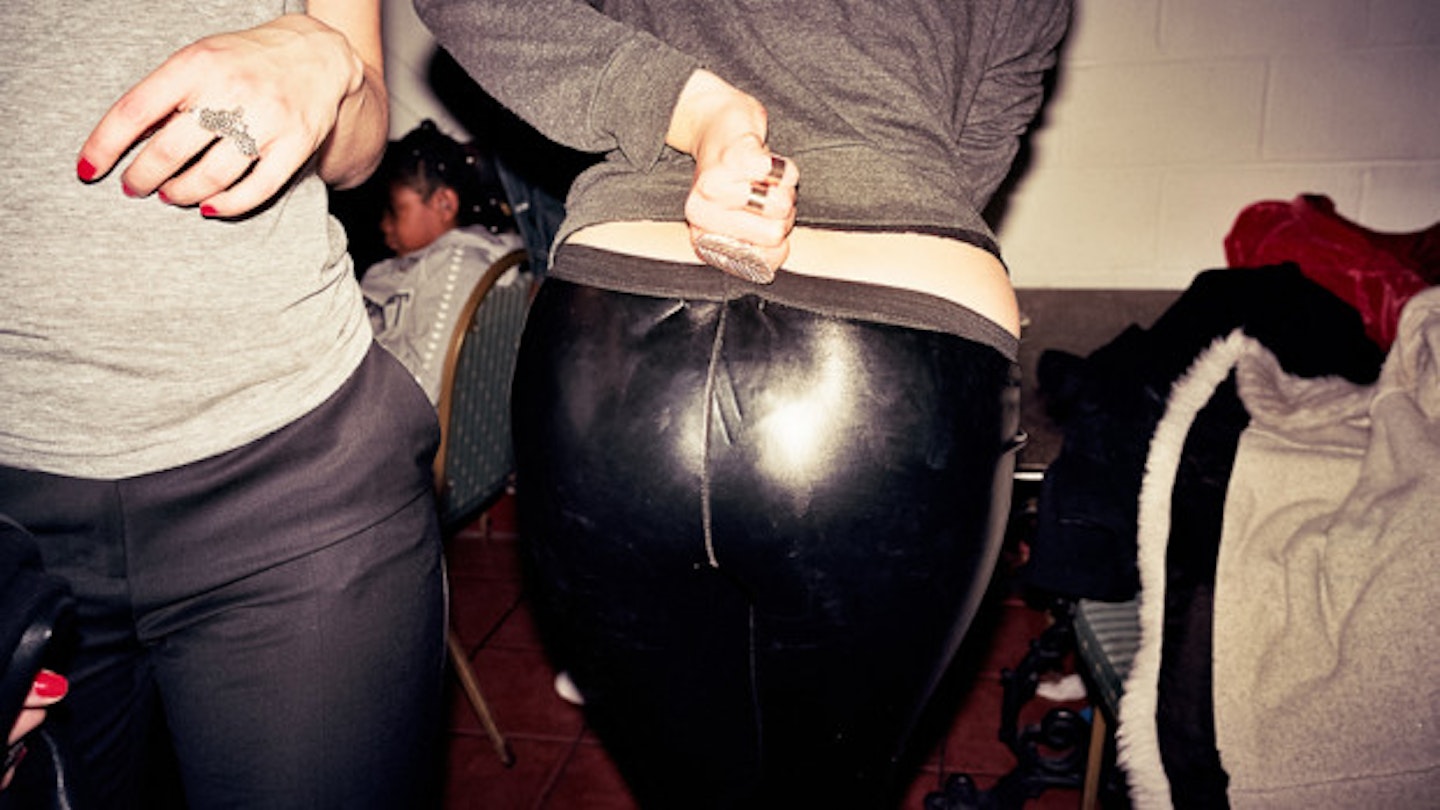Way back in Year 7, Miss Roberts didn’t do much to improve evil PE teacher stereotypes when, while picking teams, she gestured towards me and barked, ‘You chubby ones wait at the back.’
If this was an American high school movie, I’d have gone on to score the winning point in a tense but ultimately uplifting game of basketball. Instead, I went red, pissed around with some foam tennis balls for a while and cried to my mum when I got home. When you’re slightly chunkier than your average 11 year old, you’re used to mean comments from kids. But a teacher? An adult, holding down a job (a job where the main requirement is to shout at people for having periods, but still) was making reference to my weight, in public, even though I was like propa well good at English an’ stuff? This was a quite a lesson – and pretty much the only thing I learned in PE, to be fair (yep, still bitter).
Twenty-odd years on, not much has changed – we’re getting judged and penalised for our weight by supposed professionals all the time, with research showing that the average obese or even just plain old overweight woman earns significantly less than their slim-to-medium colleague – $2.62 an hour less, to be precise – which is about £1.54 or, in my preferred currency, two-and-a-half packets of Maltesers. It doesn’t sound like much, until you realise it’s over 3K a year. If you want any confirmation about the discrimination overweight people face, look no further than Facebook’s ‘530 Fatties’ page, which made the news today for encouraging users to send in pictures of ‘fatties’ in their area so they can be mocked. Charming. Yep, turns out there’s a great big 'ass' in glass ceiling.

What can we learn from this? Well, mainly that people are dickheads. In an ideal world, nobody would judge anyone for their weight and we’d all ride around on specially reinforced unicorns. But now, with 12 years in employment under my belt (well, extensive collection of waist-cinching belts ranging from S/M to XL), I’ve caught several glimpses of this prejudice in action and know that there’s a reason why ‘fat cat’ is a term only ever applied to successful men.
There’s a reason why ‘fat cat’ is a term only ever applied to successful men
In my working life, my BMI has gone from ‘obese’ in my early twenties to ‘average’ in my late twenties to ‘a bit fat, but not remarkably so, and anyway I don’t care anymore because I am strong, confident woman with big boobs and nice husband’ right now, at 33.
And what about my career? Well, I was earning crap money in my early twenties. Then I earned decent money in my late twenties. Maybe that’s just a normal career trajectory? After all, everyone’s skint when they’re 23 and better off when they’re 29, right? Well. Let’s travel back to 2008 when I was, by some mileage, the fattest person in my office. The office in question was a magazine where, despite buckets of cupcakes being dragged in by dead-eyed promo boys most days, the average dress size was probably an 8. I was pushing a 20 and, while my pretty little colleagues bounded around in floral playsuits, I sat in the corner in whatever ill-fitting drapey black trousers I’d picked up at Dorothy Perkins. While the people were lovely (‘some of my best friends are skinny’), I felt distinctly un-lovely, and I decided to do something about it.

Fast-forward six months, and I’d lost five-and-a-half stone on an insanely strict diet. I felt amazing, and I had a whole new wardrobe of pencil skirts and pretty dresses to swan around the office in. Within two months of buying my first size-10 top, I got a new job at a newspaper – a job that almost doubled my salary. And I don’t think I would’ve got that job if I’d still been really fat.
I don’t think I would’ve got that job if I’d still been really fat
It’s not that I thought my new boss was so much of an arsehole that he would’ve disregarded me at first sight, but for me it was, to borrow a naff expression from Gok Wan, all about the confidence. I wasn’t worried that he was counting my chins instead of listening to me, my new dress size meant I had the pick of the high street’s stylish but interview-appropriate clothes, and I wasn’t worried about looking like a greedy fat pig if I accepted a breakfast meeting croissant. As a result, I was more able to get my professional brilliance across.
The fact is, if you’re dreadfully unhappy with your weight, you carry yourself differently and your lack of self-esteem is obvious to the very person you want to impress. I don’t think fat people are necessarily paid less, but I do think unconfident people are paid less, and there happen to be a lot of unconfident overweight people. Why? Because people have been trying to make us feel like crap our whole lives.
When you lose a lot of weight and suddenly, to new people you meet, your dress size is no more remarkable than the colour of your eyes, you hear stuff that you cannot unhear. New people – new people who don’t know that you used to be not just chubby but obese – say vile things behind fat people’s backs all the time, things they wouldn’t say to that person’s face.
New people who don’t know that you used to be not just chubby but *obese* say vile things behind fat people’s backs
Sometimes it’s not so much vile as merely dismissive. I’ve been on interview panels where afterwards, I’ve said something like, ‘I thought Claire was great’ and my fellow interviewer has gone, ‘Which one was Claire, the fat one?’ If you’re fat, it becomes your defining characteristic; the first thing people think of when they picture you. And personally, I’d rather my go-to term was something that more accurately describes my true self, even if it’s ‘the one in the cat dress who wouldn’t stop banging on about her wedding’.
Of course, there are confident fat people – I know loads of plus-size bloggers and models who’d balk at the insinuation that their weight had ever held them back, and I admire them hugely, no pun intended. But right now, they’re still in the minority, and while the idea of reclaiming ‘fat’ to be a descriptive word rather than a derogatory one is great in principle, it’s a long way off in the average workplace.
People who’ve never been overweight have had it drummed into them their whole lives, by everyone from the playground bully to their yo-yo dieting mum, that fat is something to fear, that fat means lazy, that fat means ugly, that fat means you don’t look after yourself. None of these are qualities an employer is going to award a fat bonus for when – unfortunately for those of us who are prone to the chub but know those stereotypes aren’t true – fat bonuses are not literally fat bonuses. The irony is, there’s nothing lazier than dismissing someone just because they’re overweight.
Follow Isabel on Twitter @Isabel_M_Rene
Picture: Rory DCS
This article originally appeared on The Debrief.
